Eight performances within MIRRIM project
theatre performance
2022
MIRRIM (translated as ROME-WORLD) project lasted for nearly three years starting from 2020. Finding their initial inspiration in the four Roman tragedies of Shakespeare, the participants of the Studio of Individual Directing created a series of performances that went public in 2022, first as independent performances and then as a part of the final culmination of the project, combined by Boris Yukhananov into a multi-day performance at the stage of Electrotheatre Stanislavski.

The Tragedy of Cruelty
A young girl addresses to us with confessions of a butcher intermixed with fragments of the most cruel of Shakespeare's plays and thoughts of Artaud on the cruelty aimed at yourself and the current state of the art as the source of freedom in artistic practice. While it starts as an almost archaic Greek tragedy, this monologue gradually gets deconstructed and drifts into a shape of a experimental vocal performance.
Texts used for performance and inspiration:
Letters on Cruelty by Antonin Artaud
Titus Andronicus by William Shakespeare
Interview with a former theater lighting designer who became a butcher at a slaughterhouse
Letters on Cruelty by Antonin Artaud
Titus Andronicus by William Shakespeare
Interview with a former theater lighting designer who became a butcher at a slaughterhouse
Made in collaboration with Uliana Vaskovitch, Vladimir Gorlinsky
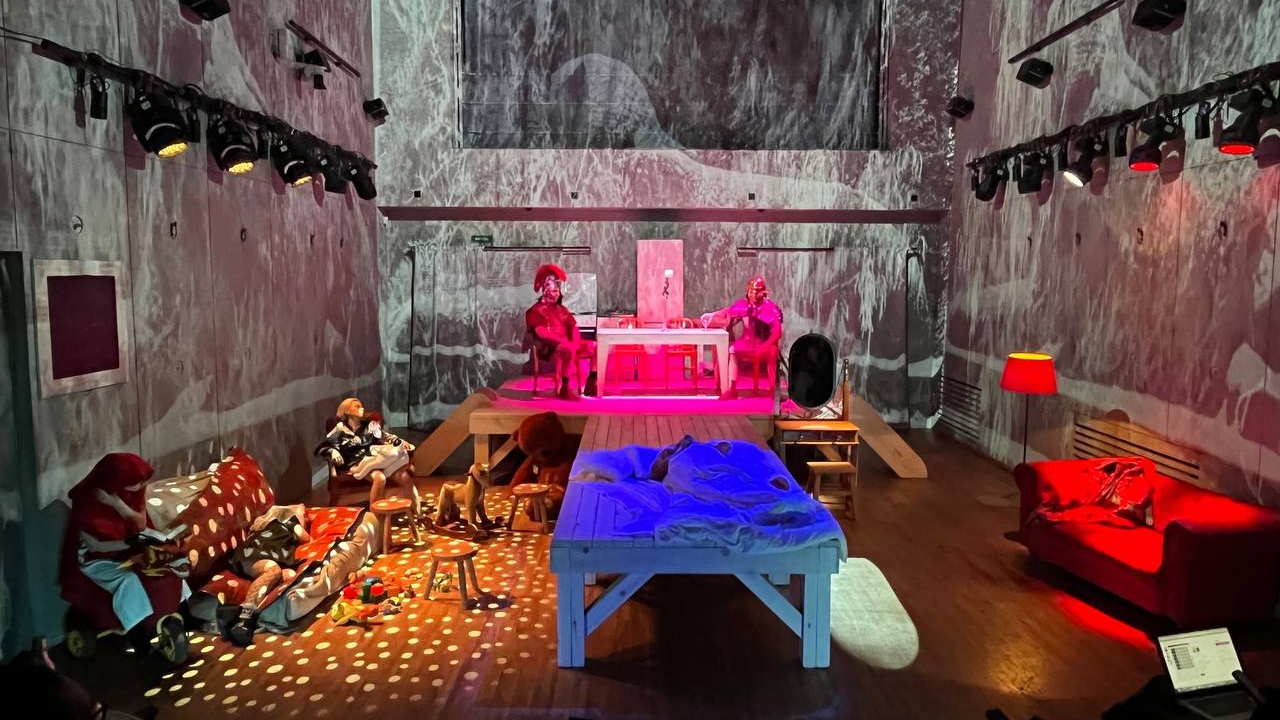
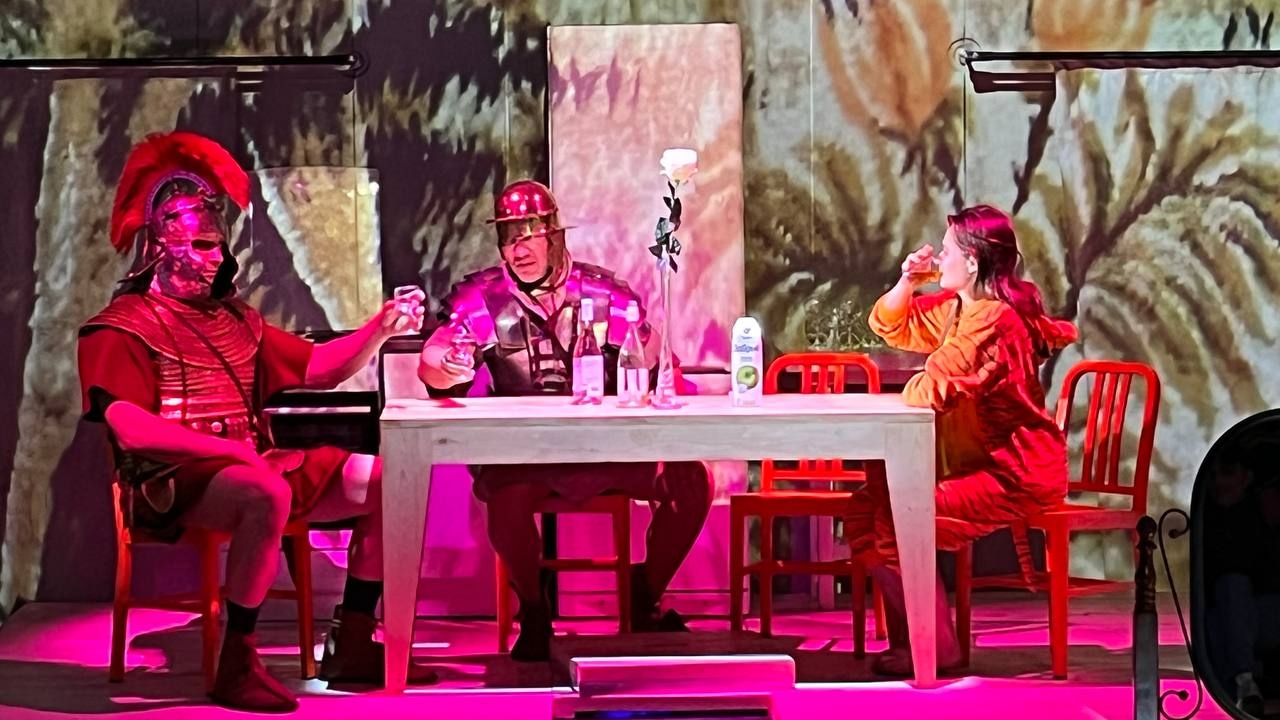
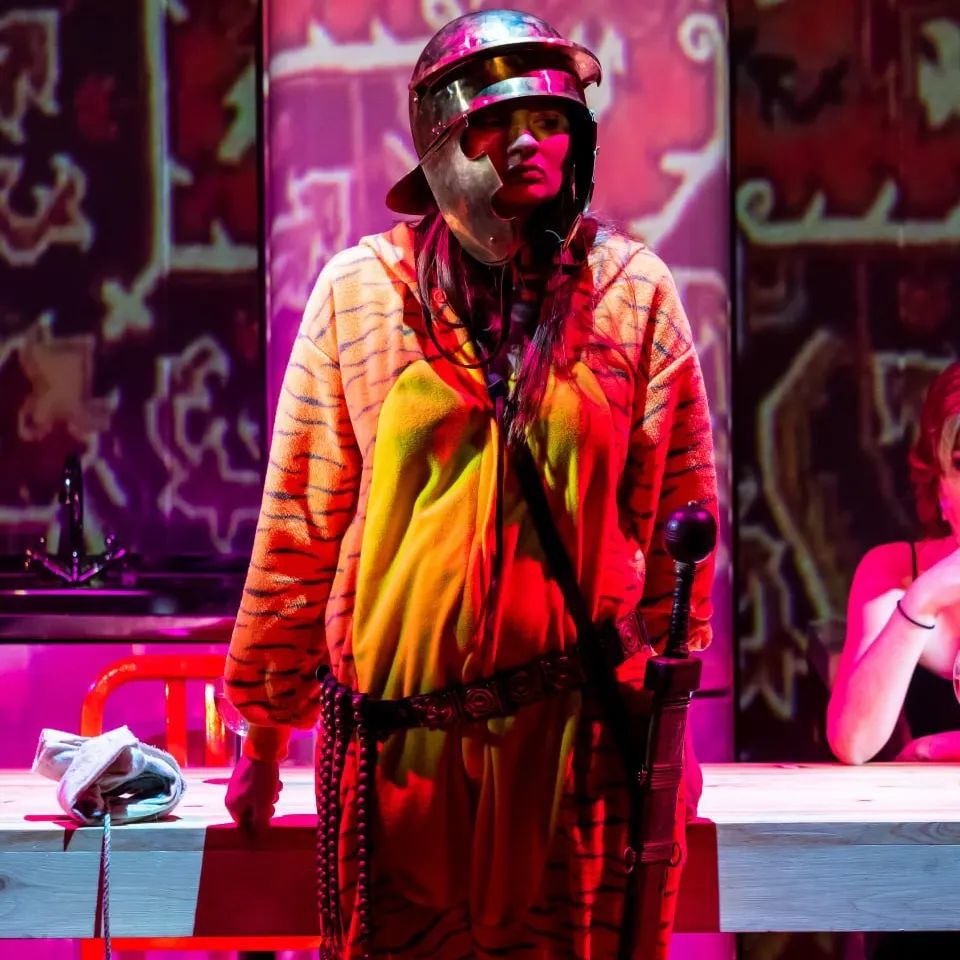
The dream of Coriolanus
This performance is a dialogue of three monologues: of a Child, her Mother and a Jester. Interacting with each other intensely but only indirectly, these three characters participate in all the stages of a classic tragedy. The child is trying to approach the total freedom from her Mother and from everything including the Language. The Mother is trying to make the Child to match Mother's ideal image of a person, what means to love the War. The Jester basically plays the role of a Greek chorus commenting of the fateful nature of unfolding events.
Texts used for performance and inspiration:
On War by Carl von Clausewitz
Roland Barthes by Roland Barthes
To Have Done With the Judgement of god by Antonin Artaud
The Ego and Its Own by Max Stirner
The Songs of Maldoror by Lautreamont
Antigone by Jean Anouilh
The description of the process of the water drop formation
On War by Carl von Clausewitz
Roland Barthes by Roland Barthes
To Have Done With the Judgement of god by Antonin Artaud
The Ego and Its Own by Max Stirner
The Songs of Maldoror by Lautreamont
Antigone by Jean Anouilh
The description of the process of the water drop formation
Made in collaboration with Uliana Vaskovitch, Liza Kashintseva, Matvey Regelson
Vladimir Gorlinsky


Investigations of a Dog
A man and his dog live together - so faraway, so close. The man is confident that he undertands his small friend, though the dog never ceases to suprise him. The dog has no clue that the man exists in this world and still devotes its entire life to the attempt to build a plausible theory about how the surrounding world functions. Combining two texts, one based on Kafka, and another on Mann, into a sort of dialogue of two monologues we approach the idea of a significant Other as an object-in-itself in all its tragicomic despair
Texts used for performance and inspiration:
Investigations of a Dog by Franz Kafka
A Man and His Dog by Thomas Mann
Investigations of a Dog by Franz Kafka
A Man and His Dog by Thomas Mann
Made in collaboration with Masha Denkova, Sergey Sokolov
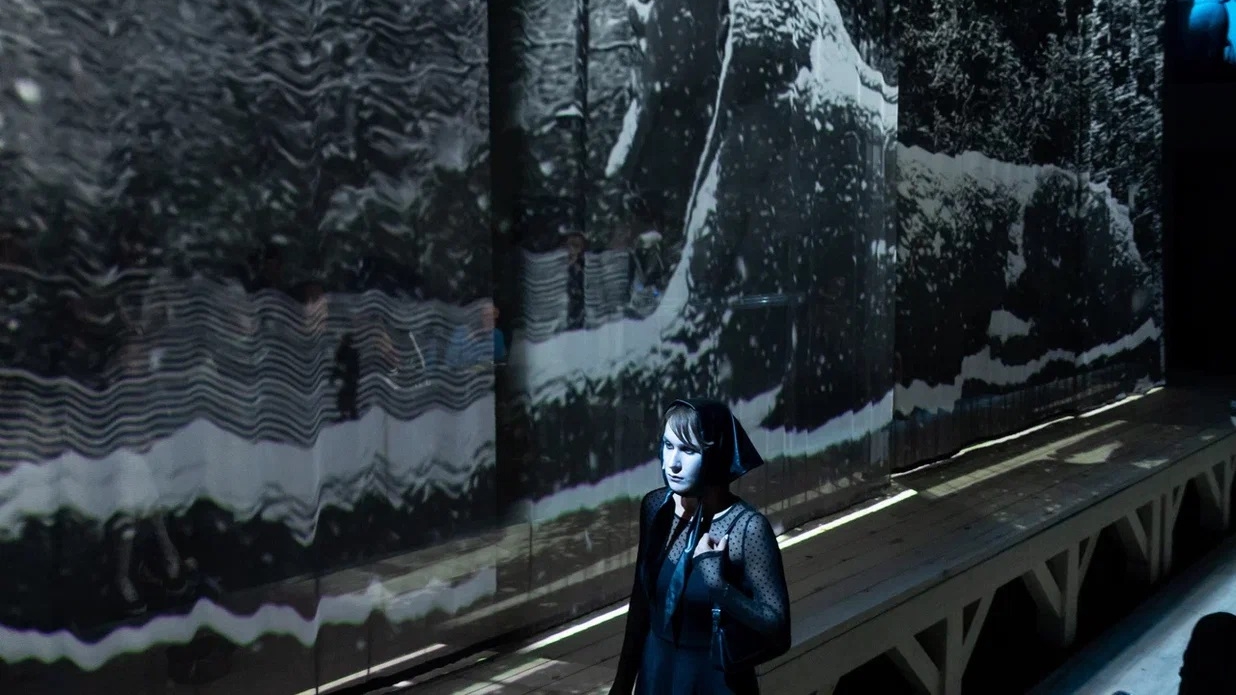
A small talk with Death
What if a man that has decided to commit suicide meets his Death in person? What if that Death has taken a shape of a fashionable young lady? What if the only way to die is to literally seduce your Death? First, the desperate man makes a futile attempt to present himself to the Death as a good dancer. Then he tries to seduce her with jokes about death and they have a dialogue on the importance of mutual feelings between then, and on the nature of human limits to understand death in general. Finally, he drops dead when the Death likes his last joke of a rather absurdist nature.
Texts used for performance and inspiration:
Original dialogue inspired by Shakespeare and Bergman's Seventh Seal
Original dialogue inspired by Shakespeare and Bergman's Seventh Seal
Made in collaboration with
Ira Chizhova and Andrei Zabara

Infernal Machine
This performance is based on the play Infernal Machine by Jean Cocteau, and shows the meeting of Oedipus and Sphinx as a meeting of a man and a woman in love. The woman sacrifices herself to the man by giving him not only a riddle, but also the answer to it, but in such a way that the man never realizes who gave him that answer that he used to conquer the Sphinx as a woman.
Texts used for performance and inspiration:
Infernal Machine by Jean Cocteau
Infernal Machine by Jean Cocteau
Made in collaboration with
Julia Mashukova and Vlad Skripko

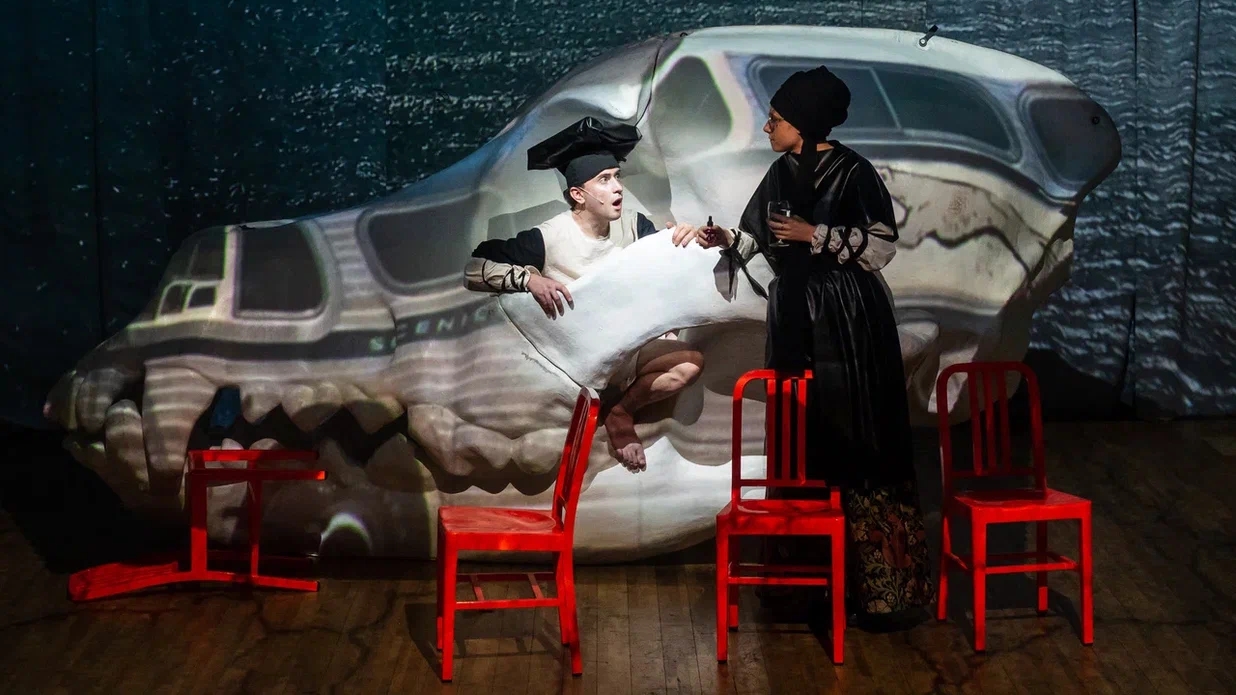

The last words of Cleopatra
Cleopatra is sipping poison and moving towards death in a tragicomic way of emotional ups and downs.
Texts used for performance and inspiration:
Shakespeare Anthony and Cleopatra
Fragments of Woody Allen's stand-ups
Shakespeare Anthony and Cleopatra
Fragments of Woody Allen's stand-ups
Made in collaboration with Julia Mashukova
Love and Lovecraft
A story of two girls who fell in love, but eventually discovered its otherwordly nature.
Texts used for performance and inspiration:
Fragments of Lovecraft’s stories
Fragments of Lovecraft’s stories
Made in collaboration with Uliana Vaskovitch, Liza Kashintseva
Bolero
A man is singing his love confession on the melody of Ravel’s Bolero, despite that it makes him slowy turning into a statue
Texts used for performance and inspiration:
Anthony and Cleopatra by William Shakespeare
Anthony and Cleopatra by William Shakespeare
Made in collaboration with Ivan Svatkovskiy